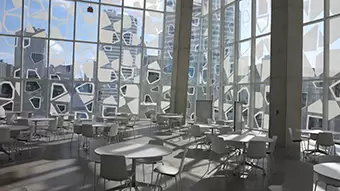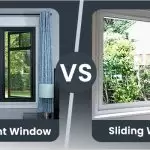
Dip-Tech announced the release of Dip-Energy printed glass performance calculator, its new energy saving assessment tool that quickly evaluates the energy performance of Dip-Tech printed glass. With Dip-Energy, architects, glass processors and glazing consultants can easily measure the impact that specific designs will have on the Solar Heat Gain Coefficient (SHGC) and the percentage of visible light (%T) of the glazed section of the building Dip-Energy is calibrated specifically for Dip-Tech digital ceramic inks and Dip-Tech printers, offering a unique tool available only to Dip-Tech users.
Post your Requirement
The ability to accurately estimate SHGC and %T is vital for the many parties involved in designing, developing and constructing buildings. The SHGC and %T data generated by Dip-Energy enables the energy performance of the printed glass to be assessed early on in the project, even in the concept and design stages. With no printing or production cost involved in testing different designs, there is practically no limit to the number of designs that can be considered. Designers can freely explore their creative ideas and evaluate each one for energy performance.

Dip-Energy is a web-based tool, with a multi-lingual user-friendly interface. The service software estimates the SHGC and %T in just a few simple steps. The user has the option to upload a graphic file or to choose a standard pattern and define the color and ink thickness. The user then provides the percentage of glass coverage, the side of the print layer, and the glass specifications.
Based on the data entered, Dip-Energy analyzes the design and calculates the energy performance of the digitally printed ceramic ink layer and of the glass glazing itself. The tool combines Dip-Tech’s proprietary formulas that evaluate the printed ink layer with the industry standard Window 7.0 formulas for fenestration calculation to generate the estimated SHGC and %T for a compound glazing with a printed glass design.
Enquire Now for Windows
“This innovative tool meets a real need in the market, enabling architects and glass processors to gain more control during the development process and reduce their dependence on energy performance consultants,” said Max Perilstein, Managing Partner of Sole Source Consultants. “As a tool that aids architects in understanding and presenting the impact of different glass designs on the energy performance of their buildings, Dip-Energy will help increase demand for digital ceramic printed glass”.
Dip-Tech is the world’s leading provider of digital in-glass printing solutions that combine the durability of ceramic inks with the versatility and quality of digital printing. With more than a decade of market experience, Dip-Tech provides an unmatched and field-proven solution for all exterior and interior flat glass printing applications spanning a full range of artistic and functional requirements.






















Post A Comment